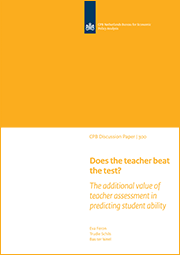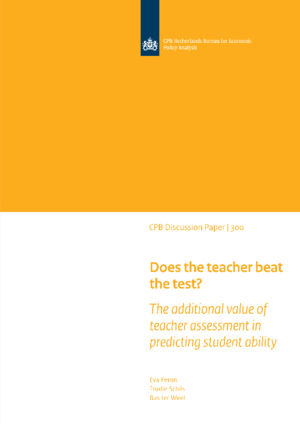Does the teacher beat the test? The additional value of teacher assessment in predicting student ability

This in terms of initial track allocation, track switching in the first three years of secondary education and subsequent test scores. We apply micro-data from the Netherlands about cognitive test scores and teacher assessment in elementary schools and about track placement, track switching and test scores in secondary schools. Our estimates suggest that subjective teacher assessment is about twice as important as the elementary school cognitive test scores for initial track placement in secondary school. In addition, teacher assessment is more predictive of track allocation in 9th grade compared to cognitive test scores. Next, children who switch tracks are more likely to be placed in tracks based on test scores. Also, test scores in 9th grade are predicted by subjective teacher assessment, not by test scores in sixth grade. Finally, a back-of-the-envelope calculation shows that switching could be reduced by at least ten percent if children would have been allocated according to the teacher’s assessment.
